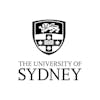|
Now we finally have a date for the Voice to Parliament referendum, it’s a good time to return to the terrific work our academic experts have done to explain the Voice to Parliament – as well as debunking some of the misinformation and disinformation we’ve seen so far.
Many of the questions we have addressed came from readers who took part in our Voice reader survey last year. In seeking answers, we’ve drawn from the nation’s preeminent constitutional experts, and prioritised First Nations perspectives.
The Australian constitution and the 220-plus page report of the co-design proposed Voice are not very accessible for those of us who don’t speak fluent policy. This is why the work we do at The Conversation is vital. Often it’s not only academic findings we need to translate for readers, but the very documents and policies that govern our lives.
So to prepare for the October 14 referendum, here are some of our articles addressing frequently asked questions. They will hopefully assist in making sure we’re as informed as possible when it’s our turn at the ballot box.
|

|
Carissa Lee
First Nations and Public Policy Editor
|
|

Mark Brake/AAP
Michelle Grattan, University of Canberra
Prime Minister Anthony Albanese announced the long-anticipated date to an enthusiastic audience of about 400 in Adelaide.
|

Bianca de Marchi/AAP
Anne Twomey, University of Sydney
Australia must go to the polls to vote in a referendum on an Aboriginal and Torres Strait Islander Voice. Some of us have never voted in a referendum, here’s what you need to know.
|
Your Voice questions answered
|

Lukas Coch/AAP
Gabrielle Appleby, UNSW Sydney; Geoffrey Lindell, University of Adelaide; Hannah McGlade, Curtin University
Mis- and disinformation about the Voice to Parliament proposal are rife. Here, experts address 10 of the most common myths.
|

AAP/Aaron Bunch
Gabrielle Appleby, UNSW Sydney; Eddie Synot, Griffith University
We now know the wording of the Voice referendum and proposed constitutional amendment. But what may have been forgotten is how we got here in the first place – and why it matters.
|

Mick Tsikas/AAP
Gabrielle Appleby, UNSW Sydney
This constitutional reform process may be ‘unorthodox’, but it’s entirely appropriate.
|

Dan Peled/AAP
AJ Wood, Australian National University
A Voice to Parliament will not fix every problem facing Aboriginal and Torres Strait Islander peoples. But it is an important step towards moving the nation to truth telling and beyond.
|

fromtheheart.com.au
Pat Anderson, Batchelor Institute of Indigenous Tertiary Education; Paul Komesaroff, Monash University
Some Australians have dismissed a Voice to Parliament as inconsequential. That argument is mistaken.
|

Bianca de Marchi/AAP
Luke Beck, Monash University
Parliament missed an opportunity to ban misinformation and disinformation during the referendum campaign.
|

Mick Tsikas/AAP
Anne Twomey, University of Sydney
The Voice to Parliament is an advisory body, which means neither parliament nor the government is legally required to give effect to its representations.
|

Mick Tsikas/AAP
Shireen Morris, Macquarie University
Even though there is strong Indigenous representation in parliament, this does not guarantee Indigenous communities a say in laws and policies made on their behalf.
|

Lukas Coch/AAP
Paul Kildea, UNSW Sydney
Legislation is an unsatisfactory way to institute a Voice to Parliament because, among other reasons, it would make the body insecure and vulnerable to the whims of different governments.
|

Dean Lewins/AAP
Andrew Jakubowicz, University of Technology Sydney
Multicultural communities could be crucial to the Voice referendum, given their size and breadth. The ‘yes’ campaign will need to mobilise at the grassroots level to be successful.
|
First Nations perspectives
|

Kathryn Thorburn, University of Notre Dame Australia; Joe Ross, Indigenous Knowledge; Stephen Kinnane, University of Notre Dame Australia
One crucial question about the Voice to Parliament is how it will ensure voices from regional and remote communities, such as those in the Kimberley, are truly heard in Canberra.
| |

Penny Taylor, University of Tasmania; Daphne Habibis, University of Tasmania; Kellie Pollard, Charles Darwin University
Decades of government Indigenous Affairs policy has not delivered. A new approach is needed. Policy-making informed by Indigenous lived experience through a Voice to parliament may be the answer.
|

Kelly Menzel, Southern Cross University
The Voice to Parliament is being heralded as a future solution to many issues. But there are issues that need to be addressed with more urgency.
| |

Sana Nakata, James Cook University
We are not the nation we were when we voted ‘no’ for a republic – but this seems to be the nation the Liberal Party insists on speaking to.
|
|
|
|
|
| |
|
|
|
Auckland University of Technology
Auckland, New Zealand
•
Full Time
|

|
|
Auckland University of Technology
Auckland, New Zealand
•
Full Time
|

|
|
The Conversation AU
Melbourne VIC, Australia
•
Full Time
|

|
|
|
|
| |
| |

|
| |
| |
| |
Featured Events, Courses & Podcasts
|
View all
|
|
6 July - 6 October 2023
•
|

|
4 - 8 September 2023
•
Carlton
|

|
4 September 2023
•
Camperdown
|

|
18 September - 14 November 2023
•
New Zealand
|

|
|
|
|
| |
| |
| |
| |
| |
|
|